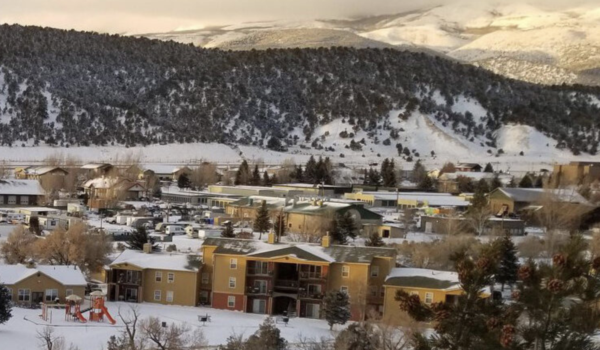Recently, I’ve taken a pronounced interest in mobile home parks (MHPs). This came, as folks say, slowly and then all of a sudden: first, after a teammate shared the heartbreaking circumstances of a western slope MHP experiencing severe water and sewer issues; second, after watching a NonProfit Quarterly session on Remaking the Economy; and third, after reflecting on living in at least 3 trailer homes growing up in rural Michigan – and how meaningful it was for my single mother to become a homeowner for only $10k in the early 2000s.
So I got curious:
What lessons and opportunities exist in this niche of affordable housing? I began speaking with folks about acquisition, preservation, residents’ rights, community organizing, ownership and management models, and more.
First, some clarifications:
– “Trailer” or Mobile homes refer to pre-1976 manufactured units, prior to enforcement of construction standards.
– While the phrase ‘mobile home’ is still commonly used, a key difference between a pre-1976 mobile home and a newer manufactured home is that HUD standards have grouped all types of movable, factory-built housing as manufactured (Bob Vila, 2022).
– Colorado Division of Housing (DOH) clarifies that manufactured homes built after 1976 fall under the Mobile Home Park Act.
While manufactured homes are an important form of Naturally Occurring Affordable Housing (NOAH) that allow millions of people like my mother and grandmother to hold a semblance of The American Dream of home ownership, some people still hold a negative perception or they fear an adverse effect on their property values. This NIMBY (“not in my back yard”) pushback is one challenge to maintaining or increasing the supply of these units.
Legislative Highlights
Since manufactured homeowners in parks do not own the land beneath their homes, they are vulnerable should their park be sold to investors like Frank Rolfe, who likened MHPs to a Waffle House where the customers are chained to the booths.
In 2019, Colorado’s Mobile Home Park Act was passed to protect residents’ rights, mandating that MHPs exceeding five units register with the state of Colorado and creating the Mobile Home Park Oversight Program (MHPOP).
As of Fall 2022, MHPs in Colorado have 120 days’ Opportunity to Purchase (OTP) or first right of refusal to purchase the park – one of the strongest in the US. While a Resident-Owned Community (“ROC”) is an increasingly popular option for such acquisition, other entities like nonprofit organizations or municipalities can also safeguard affordability and residents’ rights.
Continued Exploration
The 2023-24 MHPOP Reported:
761 registered MHPs in Colorado, encompassing 57,977 lots:
– 48,535 lots rented to resident home owners;
– 4,349 occupied mobile homes owned and rented out;
– 1, 201 lots with other (vacant, abandoned, etc.) mobile homes;
– 3, 892 indicated as “other” (vacant or with vehicles /structures other than mobile homes).
The combination of the latter two categories means there are 5093 underutilized lots in registered mobile home parks that could, with the right resources, become someone’s next home – perhaps an early career teacher, city council member, firefighter, farmworker, or a local grocery clerk. Many new manufactured homes can be found under $200,000, offering a more affordable mortgage for the local workforce in small or rural communities.
Governor Polis prioritizes “More Housing Now,” prioritizing new development. Yet, compared to the slow and expensive process of site-built units, those 5093 lots hold potential energy that could transform rural housing affordability in months, rather than years.
That opportunity ought not to be overlooked – but how do we unlock that potential? Is the demand there? Is the capacity there to remove, replace, and manage new units? Can the underlying infrastructure maintenance be addressed in a financially sustainable way?
There is still much to explore here, so the journey continues. My inbox, ears, and mind are open to your ideas, expertise, or concerns. Reach out if you’d like to join the conversation!
Written By: Maggie Kinneberg
Maggie Kinneberg is a multi-faceted collaborator and leader, focused on the intersections of learning, food systems, and community health promotion....
Read Bio Contact Maggie



